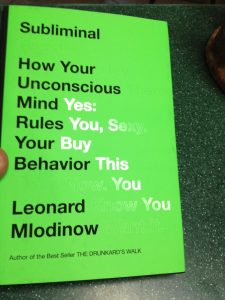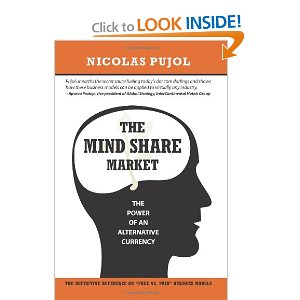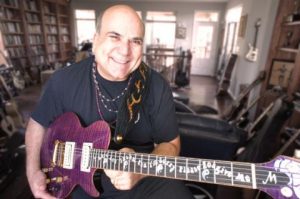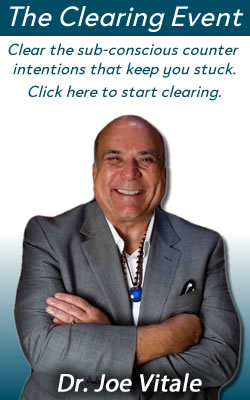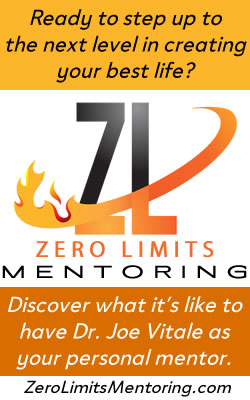Tag: coaching
Lost Mad Men Secret
The hit AMC television show, Mad Men, has been riveting and repulsing me since I first started watching it years ago. You’d think I’d turn it off. But there are moments in the show when brilliance comes through and I sit in awe. Then again, there are way too many moments where I’m just disgusted.
In case you didn’t know, Mad Men is a soap opera-ish adult drama about an up-start advertising agency in New York City in the 1960s. The characters are alive and easy to love or hate; the sets are so real it feels like you time traveled right to the sixties; the conflicts, personal and public, are engaging; the dialogue is human, real, and sometimes profound. All in all, it’s no wonder the show is a hit. It’s prime time drama with unique elements. And it’s won 15 Golden Globe awards and 4 Emmys — so far.
So why does it repulse me?
Virtually everyone on Mad Men has at least one psychological problem. The leader of the pack is of course Don Draper, brilliantly played by actor Jon Hamm. Draper has so many demons inside his skull, he’s a walking version of an internal hell. He’s self-destructive with women and booze, but he’s also often a genius at ad campaigns. He’s got so many secrets he might as well call himself Freud’s best candidate for therapy. In fact, he’s not even Don Draper. That’s the identity the character stole long before he became an ad man. Ah, the twists into mental hell.
Of course, I didn’t like it at all when Lane Pryce, a charming character in the show (played by Jared Harris), embezzled money from the company, was caught by Don Draper, and committed suicide. That episode is still stuck in my craw. I wasn’t even going to write a blog post about the show until after that unforgettably sad airing. I liked Lane. But he, too, was deeply flawed. More than that, people unconsciously model what they see. Seeing a strong character choose suicide is not showing wisdom. Again, we unconsciously attract what we believe and expect.
But the psychological issues don’t bother me so much as the business practices the agency demonstrates.
Lying, betrayal, manipulation, head games — it’s the way of life on the TV show. The series reveals the struggling agency is a prostitute that will sell anything for money. Their chief secretary, Joan Holloway (played by Christina Hendricks), even sells her body for a one night (actually, it was a one evening) stand to get a partnership in the agency and sway a voting client to give the agency a new account. And the agency itself takes on a car company they openly believe manufactures unreliable cars. Anything for a buck.
I know something about ad agencies. I’ve studied and written about some of the real life “Mad Men” in history. Most of the names are legends in the business (and sometimes dropped on the TV show for authenticity), but many you may never have heard of unless you go Google them: John Caples, Bruce Barton, David Ogilvy, Helen Woodward, Claude Hopkins, Rosser Reeves, and more.
These people were geniuses at writing copy and creating ads that pulled in sales. Some, like Maxwell Sackheim, created ads that were so powerful in making sales, they ran unchanged for forty years.
What I admire about the real Mad Men (and Mad Women) I studied were their creativity and sincerity. Bruce Barton, the cofounder of BBDO, and the subject of my book, The Seven Lost Secrets of Success, believed sincerity was the key to success. He turned down clients he didn’t believe in, walking away from thousands to millions of dollars.
John Caples, one of the most famous copywriters in history (he wrote the legendary 1926 ad, “They Laughed When I Sat Down At The Piano, But When I Started to Play…!”), said Barton’s secret was one word: sincerity.
I don’t see that secret practiced in the TV show.
Obviously, there is much truth to the stories and characters in the AMC series. You can read plenty of books about that era and discover many businesses practiced that sort of insincere, manipulative advertising, marketing, and selling. Some still do today. I’m not overlooking that reality. I’ve seen it first hand.
Decades ago in Houston I was in the offices of a corporation, there to write a sales letter for the company, when the president took a call and started yelling, “If you want a $#!&**!!! war, then you got it!” He then slammed down the phone. He turned to me, smiled, and continued our conversation as if nothing had happened. It was unnerving. I was seeing “Mad Men” the TV show in action.
I didn’t like it.
That’s the dark side of business; the side that repulses me.
But there’s also the bright side.
What I am pointing out is the fact that many people and businesses practice compassionate capitalism. They practice sincerity. They did then. They do now. They work hard to offer a product or service they believe in, and they market it in ethical ways. I think they should get equal time on the air.
The Internet helped me discover a more loving way of doing business decades ago. That’s when people who should be competitors of mine became affiliates, coauthors, and supporters of mine. It was refreshing to see online businesses openly share in the income, openly share credit, and openly work on deals together. I saw love in online marketing. I practice it, and teach it. I’ve written about it, too, numerous times, and in numerous books. This love based approach to business is alive and well. Not just online, of course, but everywhere — if you look.
But I rarely see that portrayed in the Mad Men series. Sometimes Don Draper will do a noble thing. Often he exhibits genius in creating or analyzing ads and concepts. Sometimes a young executive will reveal strong ethics (usually the character named Ken Cosgrove, played by Aaron Staton) in the show.
Unfortunately, more often than not, the show reveals the shadow side of business and life. If you don’t educate and enlighten yourself, the negative elements broadcast in the show may distort your view of reality; you’ll see the negative even in the positive.
That’s where I want to see a remedy.
Here’s what I suggest:
Quit watching the show. Yea, I know, I’m not going to stop either. Not with one episode left in the current season. So at least give your brain some balance and read some of the more loving business books and read about the more wholesome business characters.
Here are a few suggestions (in no particular order):
Start Something That Matters by Blake Mycoskie
The Man Who Sold America: The Amazing (but True!) Story of Albert D. Lasker and the Creation of the Advertising Century by Jeffrey L. Cruikshank and Arthur W. Schultz
The Seven Lost Secrets of Success by Joe Vitale
The King of Madison Avenue: David Ogilvy and the Making of Modern Advertising by Kenneth Roman
My Life in Advertising and Scientific Advertising by Claude Hopkins
Faith and Fortune: How Compassionate Capitalism Is Transforming American Business by Marc Gunther
Philanthrocapitalism: How Giving Can Save the World by M. Bishop
Abundance: The Future Is Better Than You Think by Peter Diamandis
Screw Business As Usual by Richard Branson
Anything You Want by Derek Sivers
The Real Mad Men: The Renegades of Madison Avenue and the Golden Age of Advertising by Andrew Cracknell
Mad Women: The Other Side of Life on Madison Avenue in the 60’s and Beyond by Jane Maas
And remember: You can be the positive example you long to see.
You may not see it on Mad Men, but you can live it.
Rather than look for inspiration, be the inspiration.
Be the hero.
Sincerely.
Ao Akua,
Joe
PS – What books have you read showing a more positive side of doing business? I’d love to know and I’m sure others would, too. Please post a comment and tell us. Thank you.
Subliminal? Where?
I love the cover design on Leonard Mlodinow’s new book, Subliminal: How Your Unconscious Mind Rules Your Behavior. Depending on when the light hits the cover, you can’t see the “hidden” words, which is so, well, subliminal. I moved the book to and fro to catch some of the white words in this picture:
Of course, the cover design is a playful take on what your conscious mind can and can’t see. The book itself is far more in-depth, serious, scientific, and revealing. I started reading it on my iPad and loved it so much I bought the printed hardcover version, too. Why? I don’t know. Ask my unconscious.
According to Mlodinow, my unconscious is pulling my behavioral strings in ways my conscious can only rationalize.
No news to me. This is the whole reason “getting clear” is the cornerstone of my work these days. What you are “getting clear” of are the unconscious beliefs causing you to get the results in your life.
In other words, the results you get (or don’t get) are tied directly to your unconscious programming. You didn’t know it, though, because it was un-conscious.
Subliminal is a brilliant, up-t0-date look at your unconscious and how it plays you. Oh, it wants to protect you and help you survive, which is good, but it may be doing so in ways you wish it wouldn’t.
People who wash their hands non-stop are driven by unconscious programming. The unconscious wants them safe and clean. But consciously those people would love to not have to wash so much.
People who struggle with money may have an unconscious keeping it away from them, believing that money is evil or bad. Again, that’s the unconscious “protecting” the person. The person, however, would probably consciously really love to have more money about now.
I addressed this issue of money and beliefs in the first step in my book, Attract Money Now. Until you clear up the beliefs in your unconscious about “money evil,” or any variation of that erroneous statement, most likely nothing you do will work. You’ll never admit the problem is in your unconscious database, either. You’ll blame everyone and anything and never look in the mirror.
Yet the mirror holds the key.
If you’ve read my coauthored book, Zero Limits, then you know about programming. According to Dr. Hew Len and ho’oponopono tradition, we have programming/beliefs/data stuffed in our unconscious, and probably wired deep in there over generations.
More than once Dr. Hew Len told me we can never stop cleaning. We simply have too much in the unconscious to expect it to disappear with a click of a cosmic delete button.
He also said that if you knew how much clearing was being done when you practiced the healing phrases (“I love you, I’m sorry, Please forgive me, Thank you”), you would never stop.
Back to Mlodinow’s book.
It’s excellent. It explains some shocking facts, such as the ease in which “false memories” — events that never happened — can be implanted in you. (Remember the money you owe me?) The sad thing is, you may read this fascinating book and think “People are strange,” without ever realizing that everything the author explains applies to you.
Any book that helps illuminate how our mind works — especially our unconscious operating center — is going to take us a step closer to awakening. I don’t personally know Mlodinow and I’m not an affiliate for his book, so when I tell you I believe his book is a masterpiece and you need to go read it right now, it’s because I consciously feel it will help you.
Unconsciously, who knows?
Ao Akua,
PS — Having a miracles coach is still the best way I know to get clear of hidden limiting beliefs operating in your unconscious mind so you are free to attract what you consciously long for. Check it out by clicking right here.
PPS — And for funsies, here’s a video of a talk I gave a few years ago to a local group in my area. I’m not sure if you will enjoy this consciously or unconsciously, but I believe you will enjoy it. Here it is…
Here There Now
During my training to become a private pilot back in 1972, I learned something I still use today in accomplishing my goals.
When I was flying, I was taught to look at the beginning of the runway as I came in for a landing, and to look down the runway at the same time. In other words, I had to be aware of where I was as well as where I wanted to go.
When I attended car racing school a few years ago, I was taught something similar. As I drove around the track, I was urged to note where I was but to also look ahead and note where I wanted to go.
This serves me in all areas of life.
I note that I want to write this blog for you, and I notice where I want to go as I am writing. I’m here and I’m there.
Said another way, if I’m writing a book – and I have two in process right now – I am aware of how much I’ve written, and I’m aware of how much more I need to write. This moment is current reality; where I want to go is the future reality.
In the fitness contests I’ve been in, I noted where I was with before pictures, and also noted where I wanted to be with a photoshopped image of my desired end result.
This probably can be applied to everything in life.
Not in a romance?
If you only looked at now, you might miss the goal.
If you only looked at the future goal, you might miss the gift of now.
When flying, if I only looked at the start of the runway, I’d crash into it.
If I only looked at the end of the runway, I wouldn’t level off for a balanced, safe landing.
You need both.
This may be part of the reason people don’t attract what they consciously want. If they are hung up on the end result, they miss the magic of this moment, where the point of power and the leverage exists. If you just sit and visualize receiving what you want, you don’t use what is available right now.
But if you only focus on right now, without much regard or hope or planning for the future, you miss out on steering your life where you want it to go.
Again, you need both.
When you can be here and there, you can land planes safely, race cars safely, and attract what you want with acceleration.
So, where are you?
In the future?
In the moment?
Combine the two and note your new found power.
“Strangely enough, this is the past that somebody in the future is longing to go back to.” – Ashleigh Brilliant
Ao Akua,
joe
PS – Here’s an oldie but goodie lesson on how to create your own reality. Enjoy.
The Healing Song
“The Healing Song” is an original hypnotic sonnet written and performed by me, with original music composed and performed by Grammy winner David Darling. You can listen to it — and download it for FREE — right here: Click here to get “The Healing Song” for free. Enjoy!
Yours Free!
I have yet another amazing free gift for you.
I’ll tell you what it is in a minute, but notice how much more eager and attentive you are to read this post.
Why?
“Free” is the most powerful word in marketing. I’ve seen people scan entire sales letters unconsciously looking for the word “free” in it. I’ve seen people so eager for something free that they would read the word “fee” as “free” and misinterpret the offer.
A decade ago I offered an e-class on Hypnotic Writing. The fee was $1,500. But people fogged out over the price and misread “fee” as “free” and called to sign up. When I asked for their money, they were surprised. They truly thought it was free.
That said, I’ve been preaching the merits of giving things away for decades. I’ve always personally given away a lot, usually books, but in the last year alone I’ve given away five cars.
Yes, cars.
Giving is so important that I’ve written one book on it and coauthored another. It’s the core of my life. Obviously, I give away the posts on this blog, and my podcasts, and my videos, but I also give away items I could sell, such as my book, Attract Money Now.
As powerful as giving and the word “free” is in life, I’m a little confused that more people don’t do it. When I consult with people (usually for free), they fear giving away their product or service will cheapen their brand and ruin their business.
Even when I tell them Google gives a free service and yet is a billion dollar company, they don’t get it.
Even when I point out several books offer proof that free is a new business model, they are still reluctant.
Why?
I used to scratch my head about this until it came time for me to promote my music.
As you may or may not know, I’ve recreated myself as a musician. I have three albums out and a fourth being mixed in the studio right now. While I’ve been in marketing for decades, I’ve not had to promote music before. I found it a new breed of cat, and with three thousand new albums coming out weekly (!), the competition is staggering.
How do you stand out in the crowd?
Obviously music videos and concerts and publicity can help. I’ll have music videos up soon, and I’ll announce a public performance, too.
But what gets people to listen to your music in the first place?
I struggled with marketing my music for a few months. Oh, I did well offering it to my email list. They are fans and tend to support my passions. (I love you all.)
But how do you make a dent in the public’s mind?
One way is through videos on YouTube.
But that’s not enough. You still have to get eyeballs there.
What else can you do?
Enter the magic word FREE.
There are different ways of giving, of course.
Giving a song in exchange for an email address is one way, but that’s not really free, is it? You’re still asking for something (the email address).
Giving a lesser quality song in exchange and urging people to buy the CD with the higher quality song on it is also a version of free, but it’s manipulative. It’s still not free.
Free means no strings, or catches, or hidden barriers or steps.
Free means FREE.
So I decided to practice a more committed version of giving. I’m giving away the title track from my next album, tilted “The Healing Song.”
This is an original healing sonnet written and performed by me, with original music composed and performed by Grammy winner David Darling.
YOURS FREE: This is an original healing sonnet written and performed by me, with original music composed and performed by Grammy winner David Darling. You can listen to it — and download it for FREE — right here: Click here to get “The Healing Song” for free.
You can listen to it — and download it for free — right here: Click here to get “The Healing Song” for free.
Of course, I’m hoping you love the track and go tell all your friends.
So yes, I’m promoting my music in this post, but there’s a larger lesson here for you.
What are you giving?
In general, it goes like this:
If you want more money, give money. Give to wherever you receive inspiration.
If you want people to know about your service, give away your service. Let them sample it.
If you want more love in your life, give love away. Open the door to receiving by giving.
Get the idea?
In general, the more you give, the more you will receive.
Where will you give today?
And what will you give?
Ao Akua,
PS — My earlier healing music albums are: Strut!, Blue Healer, and Aligning to Zero. My next album, out in September, will have three Grammy winners involved and is called The Healing Song. All those sites have free samples from the albums on them. Enjoy.


